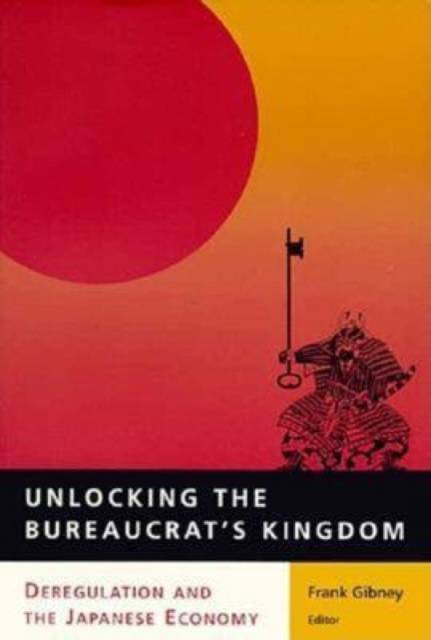
- Afhalen na 1 uur in een winkel met voorraad
- Gratis thuislevering in België vanaf € 30
- Ruim aanbod met 7 miljoen producten
- Afhalen na 1 uur in een winkel met voorraad
- Gratis thuislevering in België vanaf € 30
- Ruim aanbod met 7 miljoen producten
Zoeken
Unlocking the Bureaucrat's Kingdom
Deregulation and the Japanese Economy
Paperback | Engels
€ 38,45
+ 76 punten
Omschrijving
Japan today is caught up in chronic economic crisis, its financial system wracked by record-breaking bankruptcies and its companies hobbled by bad balance sheets, overproduction, and weak consumer demand. In turn, Japan's faltering fortunes have sent shock waves across Asia, triggering the collapse of economies in South Korea, Thailand, and other Asian countries that followed its model for rapid growth and development. While a growing chorus of Japanese politicians, business leaders, and economic analysts blame the current troubles on the misguided policies of Japan's Ministry of Finance, the root of Japan's malaise lies more fundamentally in the contradictory relationship that first made it an economic powerhouse: the combination of businesses that aggressively compete for profits in the best tradition of free enterprise with a government bureaucracy that controls the economy with a heavy thicket of regulation and guidance. And so far, despite ringing declarations of reform, the entrenched bureaucracy shows little willingness -- or ability -- to make the significant reforms that Japan (and its Asian economic disciples) needs to recover. In this book, a cross-section of Japanese, American, and European journalists and authorities in the business, political, and economic sectors examine the problems caused by over-regulation, and offer solutions for reshaping the Japanese marketplace. In Part One, former Japanese Prime Minister Yasuhiro Nakasone, Vice Minister of Finance Eisuke Sakakibara, and some of America's and Japan's leading experts on the Japanese economy map out the long road to regulatory reform. They analyze the postwar origins of today's bureaucracy, current attitudes toward regulation among politicians and the public, and the changes in both policymaking and mind set that must occur to achieve true reform. Part Two focuses on the effects of over-regulation, using illuminating case studies involving Japan's financial system, insurance markets, non
Specificaties
Betrokkenen
- Uitgeverij:
Inhoud
- Aantal bladzijden:
- 298
- Taal:
- Engels
Eigenschappen
- Productcode (EAN):
- 9780815731252
- Verschijningsdatum:
- 1/02/1998
- Uitvoering:
- Paperback
- Formaat:
- Trade paperback (VS)
- Afmetingen:
- 154 mm x 229 mm
- Gewicht:
- 272 g

Alleen bij Standaard Boekhandel
+ 76 punten op je klantenkaart van Standaard Boekhandel
Beoordelingen
We publiceren alleen reviews die voldoen aan de voorwaarden voor reviews. Bekijk onze voorwaarden voor reviews.










